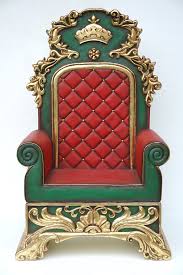throne
英 [θrəʊn]
美 [θroʊn]
- n. 王座;君主;王权
- vi. 登上王座
- vt. 使登王位
- n. (Throne)人名;(瑞典)特罗内;(英)特罗恩
使用频率:

中文词源
throne 王位,王座
来自希腊语 thronos,座位,王座,来自 PIE*dher,固定,稳固,词源同 firm,tree,endure.比喻用 法。
英语词源
- throne (n.)
- c. 1200, trone, "the seat of God or a saint in heaven;" c. 1300 as "seat occupied by a sovereign," from Old French trone (12c., Modern French trône), from Latin thronus, from Greek thronos "elevated seat, chair, throne," from PIE root *dher- (2) "to hold firmly, support" (cognates: Latin firmus "firm, steadfast, strong, stable," Sanskrit dharma "statute, law;" see firm (adj.)). From late 14c. as a symbol of royal power. Colloquial meaning "toilet" is recorded from 1922. The classical -h- begins to appear in English from late 14c.
权威例句
- 1. Edward VIII had done the unthinkable and abdicated the throne.
- 爱德华八世竟主动逊位,真是匪夷所思。
- 2. This boy's father had been executed for conspiring against the throne.
- 这个男孩的父亲因为密谋反对君主而被处死。
- 3. He renounced his claim to the French throne.
- 他正式放弃对法国王位的继承权。
- 4. the accession of Queen Victoria to the throne
- 维多利亚女王即位
- 5. her ascension to the throne
- 她的登基